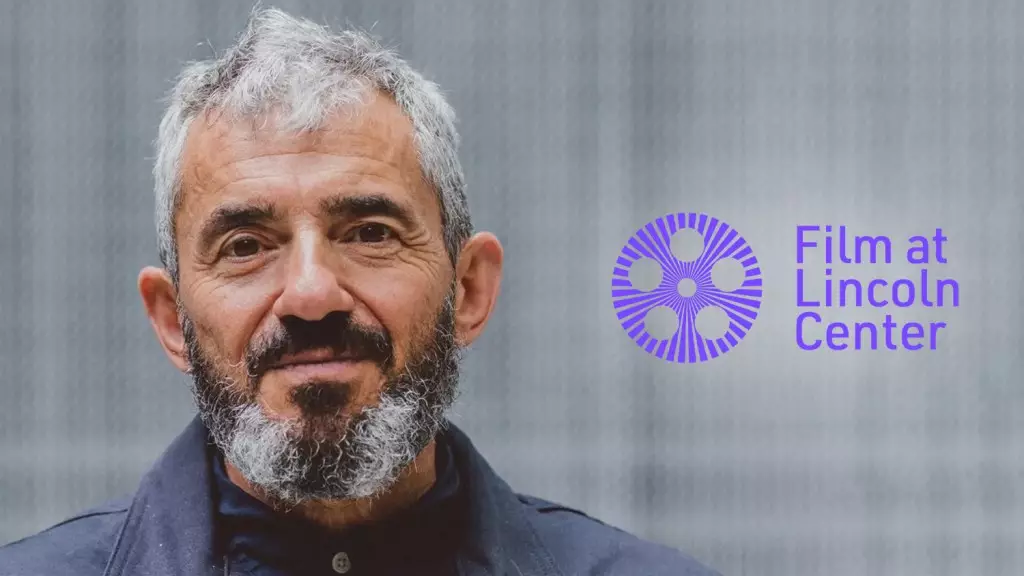The appointment of Daniel Battsek as President of Film at Lincoln Center marks a significant shift in the landscape of the American film industry. With a career steeped in producing and executive roles across some of the most influential film organizations, Battsek comes equipped with a wealth of experience that could very well redefine the trajectory of this non-profit cultural institution. His leadership is set against a backdrop that sees an evolving cinematic climate, emphasizing the need for innovation and inclusivity to attract diverse audiences.
Battsek’s association with renowned entities like Film4, Miramax, and Disney reflects his capability in navigating complex art markets, making him an ideal figure to steer Film at Lincoln Center into a new era. His years at Film4, where he championed memorable pieces such as “The Banshees of Inisherin” and “The Favourite,” showcase his dedication to quality storytelling—all qualities that align perfectly with the mission of Film at Lincoln Center to be a nurturing ground for cinematic expression.
Connecting the Dots: A Career of High Impact
What sets Battsek apart is his well-rounded trajectory throughout various pivotal roles, serving as a bridge between independent and mainstream cinema. His tenure as President of Filmed Entertainment at Miramax was particularly notable; assuming leadership at a time when the brand’s reputation was marred by the exit of its controversial founding figures. During this tumultuous period, he greenlit cinematic masterpieces that not only told intimate human stories but also challenged audiences to think critically about their world. Titles such as “No Country for Old Men” and “The Queen” were not merely commercial successes; they were cultural landmarks.
Moreover, his role at National Geographic Films adds another layer of depth to his portfolio, reflecting his belief in the power of storytelling for social awareness. The documentary “Restrepo” is a profound exposition of war’s deceiving glamour and harsh realities, which aligns compellingly with the modern viewer’s demand for truth and authenticity in film.
Strategic Opportunities Ahead
One cannot overlook the timing of Battsek’s appointment. Following the pandemic’s disruptive impact on film attendance and festival culture, organizations are urgently re-evaluating their models. Daniel H. Stern, Chair of the FLC Board of Directors, acknowledged that Battsek’s extensive global connections and passion for cinema positioned him as an ideal candidate to lead Film at Lincoln Center through these unprecedented times. His arrival coincides with enhanced partnerships, such as the multi-year collaboration with Rolex, that can offer new financial and promotional avenues for the organization.
Battsek’s vision appears focused on expanding FLC’s culturally relevant programming while maintaining its legacy of excellence. In an age marked by a surge in streaming services and diverse distribution channels, the challenge lies in coherently blending traditional cinematic experiences with modern demands without losing the essence of film culture. Battsek’s history in production could be vital in devising innovative ways to make the New York Film Festival a crossroads for filmmakers from every corner of the globe.
The Power of Community Engagement
Equally important is Battsek’s expressed commitment to community engagement—an essential element in the revitalization of film audiences. Cinema has always been a communal experience, and as we emerge from isolation, the desire to connect through themes, stories, and shared perspectives is more vital than ever. His goal to enhance Film at Lincoln Center’s programming isn’t merely about showcasing films; it’s about weaving together the fabric of local, national, and global film communities. This perspective is essential in an era when audiences are seeking authenticity and relevance in art.
In an age dominated by viral content and effortless consumption, Battsek’s leadership can steer the conversation back to the transformative experience that well-crafted cinema offers. By creating a platform that actively engages various film communities and emphasizes meaningful dialogue, Battsek can not only cultivate a new generation of filmmakers and cinephiles but also revitalize enthusiasm for the collective experience of watching films.
Ultimately, Battsek’s vision for Film at Lincoln Center does not exist in a vacuum. His trajectory is indicative of a broader transformative moment in the film industry. The focus now is on innovation, community, and the dovetailing of artistic integrity with modern accessibility—principles that his background and expertise suggest he is more than capable of propelling forward. As the conversation around cinema continues to evolve, the Film at Lincoln Center under Battsek’s leadership has the opportunity to not only be part of that narrative but also to lead the charge.

Leave a Reply